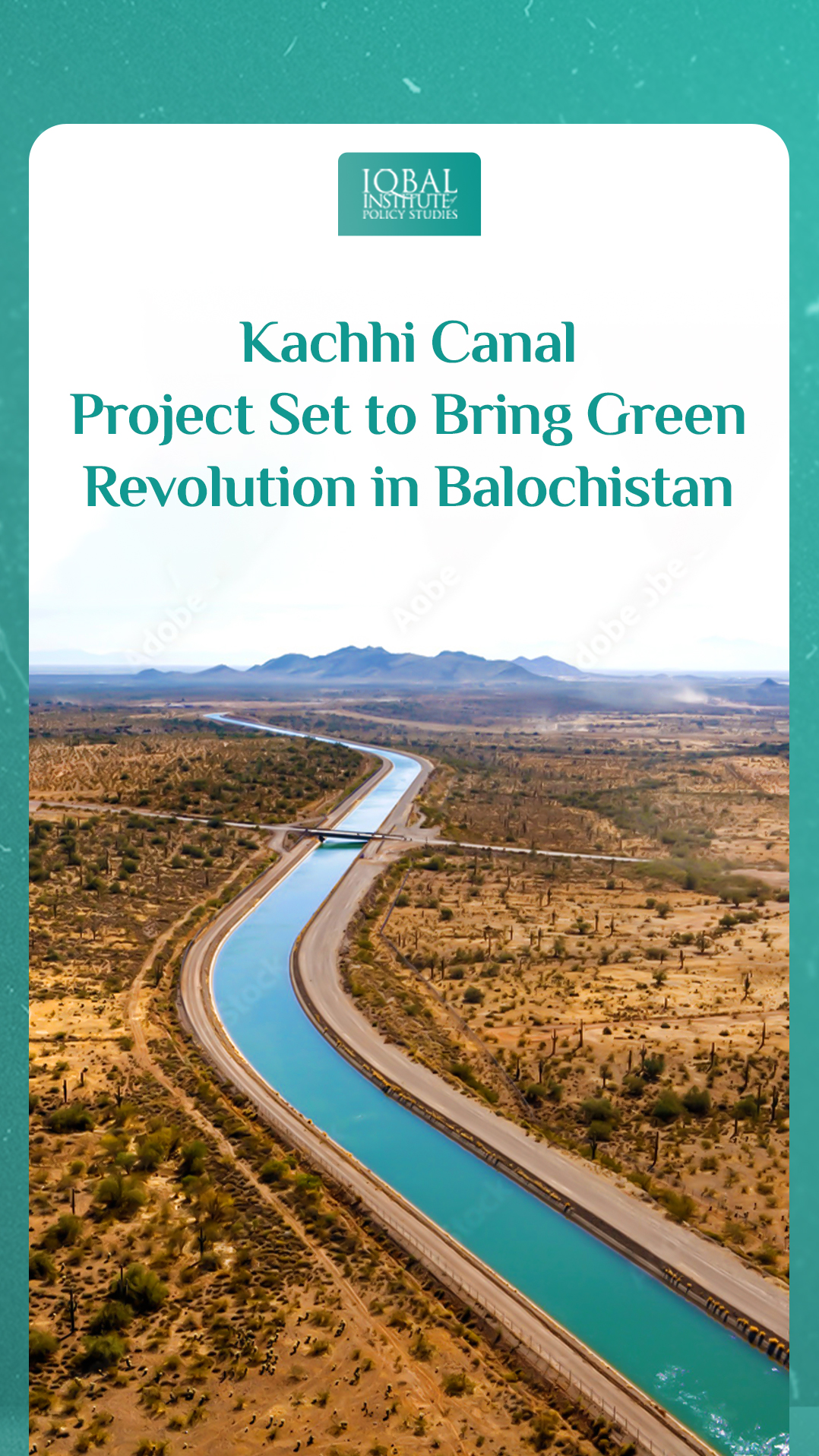The Kachhi Canal project is a 499 km long canal system that starts from Taunsa Barrage at the Indus river and terminates at Balochistan. It provides irrigation water to 72,000 acres of agricultural land in Balochistan and 30,000 acres in Punjab. In addition, it will also irrigate 713,000 acres of barren land in most areas of Balochistan. The project’s estimated cost was Rs80.2 billion, but an expenditure of Rs100 billion has been incurred since its start. The project was inaugurated in 2002 and was meant to be constructed in three phases.
-
Phase-I – in district Dera Bugti (will irrigate 102,000 acres)
-
Phase-II – in district Bolan & Naseerabad (will irrigate 267,000 acres)
-
Phase-III – in district Bolan, Naseerabad and Jhal Magsi (will irrigate 344,000 acres)
The project’s work is executed by WAPDA and is financed through Public Sector Development Program (PSDP). According to the officials, a 363-km main canal and 81-km long allied water distribution system to irrigate 72,000 acres of land in Phase-I has already been constructed and work only on 40 km is remaining, which is under progress. Furthermore, the consultants prepare PC-I for the phase II (58-km) and phase III (39-km), under which around 267,000 acres in District Nasirabad & Bolan and 344,000 acres in Nasirabad, Bolan & Jhal Magsi districts would become cultivated.
KCP is located in an arid zone climate subjected to high temperature and low rainfall, where economically sound agriculture is only possible under irrigated conditions. Currently, Balochistan has no proper canal system for irrigation. However, after the completion of this project, the cultivation of sorghum, oilseeds, pulses and wheat will be increased up to 88.5 per cent, with approximately Rs19.66 billion (Rs3.82 billion for phase-I) added to the national economy annually.
The Kachhi Canal project is considered a Green Revolution project of Balochistan. Apart from irrigating agriculture and barren lands, it will also mitigate the clean drinking water stress for about two million people. During its construction process, there will be hundreds of thousands of job opportunities for the local masses. It is a vital project to alleviate poverty by developing irrigated agriculture and an agro-based economy in the province.



Leave a Reply